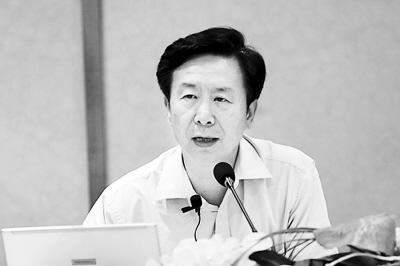Learn from Japan's income-doubling plan: official
China should model its 12th Five-Year Plan on the "income-doubling" plan launched by Japanese Prime Minister Hayato Ikeda in the 1960s, said Su Hainan, director of the Labor and Wage Institute of the Ministry of Human Resources and Social Security.
 |
|
Su Hainan, director of the Labor and Wage Institute under the Ministry of Human Resources and Social Security, says China should take a lesson from Japan's "income-doubling" plan of the 1960s. |
The plan was the starting point for Japan's economic take-off, Su told the People's Daily Overseas Edition.
By 1967, Japan had doubled its national income and achieved an average annual growth rate of 7.2 percent.
The rapid growth of the Chinese economy means there is room to boost personal incomes, said Su. The income-doubling plan is necessary to establish a normal mechanism for determining wages and to meet the demands of the people.
But China can increase its national income by 15 percent a year, doubling it in 5 years, Su said.
Su said the present income distribution system suffers from a number of problems. There is a widening gap between rich and poor. Many ordinary workers face wage arrears and deductions while those in monopoly industries enjoy bonuses and subsidies in addition to their salaries. Reforms to address these issues will be introduced before the end of 2010, Su said.
Su believes the fundamental cause of the problems was an irrational development model and restraints on economic mechanisms.
In bringing in reforms, the government's starting point should be the principles of social justice, and serving the public interest.
 0
0 






